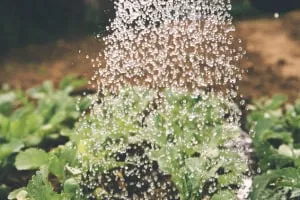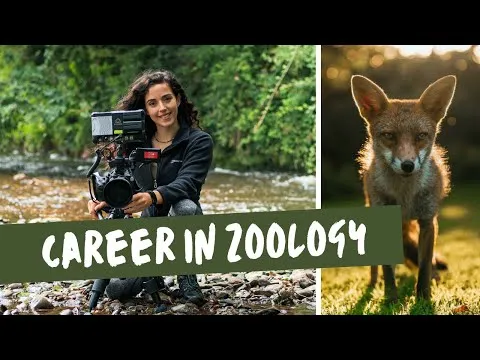
Diploma in Ecology and Ecological Interactions 
Discover the fascinating world of ecology and ecological interactions with this comprehensive free online course. Dive into the concepts and theories of evolution and ecology, exploring the interactions that drive animal abundance and distribution. Learn about ecosystems, behavioral ecology, and the role of 'fitness' in evolution. Explore the levels of organization in the biological world and measures of biodiversity. Delve into the intricacies of ecological interactions, including intraspecific and interspecific synergies, competition, and behavioral ecologies. Gain a deeper understanding of primary production, biogeochemical cycles, and the importance of nitrogen fixation. Perfect for anyone interested in ecology and ecological interactions. Enroll now and expand your knowledge in this captivating field. ▼
ADVERTISEMENT
Course Feature
![]() Cost:
Cost:
Free
![]() Provider:
Provider:
Alison
![]() Certificate:
Certificate:
No Information
![]() Language:
Language:
English
Course Overview
❗The content presented here is sourced directly from Alison platform. For comprehensive course details, including enrollment information, simply click on the 'Go to class' link on our website.
Updated in [September 15th, 2023]
What does this course tell?
(Please note that the following overview content is from the original platform)
In this comprehensive free online course on ecology and ecological interactions, you will be introduced to a wide range of concepts and theories connected to evolution and ecology. It will begin by familiarizing you with some of the interactions that drive the abundance and distribution of individual animals. You will study the essential concepts around ecosystems and behavioral ecology, and then discuss the role of ‘fitness’ in evolution. After this, you will look at the ‘emergent principle’ the levels of organization in the biological world, and measures of biodiversity.
Then, the course will help you learn about ecological interactions, especially the difference between intraspecific and interspecific synergies, and exploitative competition and interference competition. Different kinds of behavioural ecologies, such as foraging behaviour and anti-predator behaviour, are also analyzed. You will study primary production, the efficiency of production, and the biogeochemical cycle in greater detail. At the end of this course, you will explore the importance of nitrogen fixation and ammonification in the nitrogen cycle.
This free online course will be of great benefit to those with an interest in learning about or working in the area of ecology and ecological interactions.
We consider the value of this course from multiple aspects, and finally summarize it for you from three aspects: personal skills, career development, and further study:
(Kindly be aware that our content is optimized by AI tools while also undergoing moderation carefully from our editorial staff.)
What skills and knowledge will you acquire during this course?
During this course, the learner will acquire a range of skills and knowledge related to ecology and ecological interactions. They will gain an understanding of the various concepts and theories connected to evolution and ecology. The course will introduce them to the interactions that drive the abundance and distribution of individual animals, providing a foundation for further study.
The learner will also explore essential concepts around ecosystems and behavioral ecology, deepening their understanding of how organisms interact with their environment. They will examine the role of 'fitness' in evolution and learn about the emergent principle and the levels of organization in the biological world. Measures of biodiversity will also be covered, allowing the learner to assess and analyze the diversity of ecosystems.
The course will delve into ecological interactions, focusing on the difference between intraspecific and interspecific synergies, as well as exploitative competition and interference competition. The learner will gain insights into different kinds of behavioral ecologies, such as foraging behavior and anti-predator behavior, enabling them to understand the strategies organisms employ to survive and thrive in their habitats.
Additionally, the learner will study primary production, the efficiency of production, and the biogeochemical cycle in greater detail. They will explore the importance of nitrogen fixation and ammonification in the nitrogen cycle, gaining a comprehensive understanding of the biogeochemical processes that sustain ecosystems.
Overall, this course will equip the learner with a solid foundation in ecology and ecological interactions. They will develop skills in analyzing and understanding the complex relationships between organisms and their environment, making them well-prepared for further study or work in the field of ecology.
How does this course contribute to professional growth?
The Diploma in Ecology and Ecological Interactions course offers a valuable opportunity for professional growth. By enrolling in this course, individuals can gain a comprehensive understanding of various concepts and theories related to evolution and ecology. This knowledge can greatly contribute to their professional development in the field of ecology.
One of the key aspects covered in this course is the study of interactions that drive the abundance and distribution of individual animals. Understanding these interactions is crucial for professionals working in ecology, as it allows them to analyze and predict the behavior and population dynamics of different species. This knowledge can be applied in various professional settings, such as wildlife conservation, environmental consulting, or research.
Furthermore, the course delves into essential concepts surrounding ecosystems and behavioral ecology. Professionals who have a strong grasp of these concepts can effectively analyze and manage ecosystems, making informed decisions to promote ecological balance and sustainability. This knowledge is particularly valuable for individuals working in environmental management or conservation organizations.
The course also explores the role of 'fitness' in evolution, providing professionals with a deeper understanding of how species adapt and evolve over time. This knowledge can be applied in fields such as evolutionary biology or genetics, where professionals study the mechanisms behind species' adaptations and the implications for their survival.
Additionally, the course covers various ecological interactions, including intraspecific and interspecific synergies, competition, and behavioral ecologies. Professionals who have a thorough understanding of these interactions can better analyze and predict the dynamics of ecological communities. This knowledge is particularly relevant for individuals working in ecological research or environmental impact assessment.
Finally, the course delves into topics such as primary production, biogeochemical cycles, and nitrogen fixation. Professionals who possess a strong understanding of these concepts can contribute to research and management efforts aimed at addressing environmental challenges, such as nutrient pollution or climate change.
Overall, the Diploma in Ecology and Ecological Interactions course offers a comprehensive and in-depth exploration of key concepts and theories in ecology. By completing this course, professionals can enhance their knowledge and skills in the field, making them more competitive and effective in their careers.
Is this course suitable for preparing further education?
Yes, this Diploma in Ecology and Ecological Interactions course is suitable for preparing further education. It provides a comprehensive overview of the essential concepts and theories related to evolution and ecology, and covers topics such as ecological interactions, behavioural ecology, primary production, and the biogeochemical cycle. It is also beneficial for those who are interested in learning about or working in the area of ecology and ecological interactions.
Course Syllabus
Introduction to Ecology and Evolution
In this module, you will be introduced to evolution and ecology. You will look at the interactions that are driving the abundance and distribution of individual animals. You will study the essential concepts of an ecosystem, biogeography evolution, modern population and community ecology. It will then discuss the role of fitness in evolution. Along with this, you will look at the emergent principle, the levels of organization in the biological world, and measures of biodiversity.Ecological Interactions and Energetics
In this module, you will be introduced to ecological interactions. You will learn the difference between intraspecific and interspecific synergies. Along with this, you will explore the differences between exploitative competition and interference competition. You will look at different kinds of behavioural ecologies, such as foraging behaviour and anti-predator behaviour. This module will also cover primary production, the efficiency of production, and the biogeochemical cycle.Course assessment
Course Provider

Provider Alison's Stats at AZClass
Discussion and Reviews
0.0 (Based on 0 reviews)
Explore Similar Online Courses

Advanced Diploma in Wildlife Ecology

Advanced Diploma in Wildlife Conservation

Python for Informatics: Exploring Information

Social Network Analysis

Introduction to Systematic Review and Meta-Analysis

The Analytics Edge

DCO042 - Python For Informatics

Causal Diagrams: Draw Your Assumptions Before Your Conclusions

Whole genome sequencing of bacterial genomes - tools and applications

Applied and Economic Zoology

HOW TO GET INTO WILDLIFE CONSERVATION Zoology degree volunteering working with animals


Start your review of Diploma in Ecology and Ecological Interactions